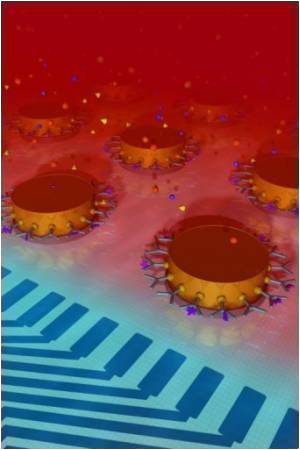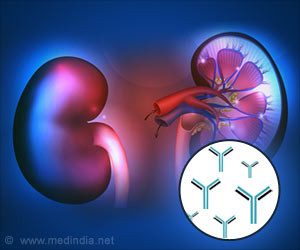New biosensor electrodes developed by Purdue University researchers could lead to more accurate measurements in research related to diabetes and other diseases.

Carbon nanotubes, cylindrically shaped carbon molecules known to have excellent thermal and electrical properties, have been seen as a possibility for improving sensor performance. The problem is that the materials are not fully compatible with water, which limits their application in biological fluids.
Marshall Porterfield, a professor of agricultural and biological engineering and biomedical engineering, and Jong Hyun Choi, an assistant professor of mechanical engineering, have found a solution. Their findings, reported in the journal The Analyst, describe a sensor that essentially builds itself.
“In the future, we will be able to create a DNA sequence that is complementary to the carbon nanotubes and is compatible with specific biosensor enzymes for the many different compounds we want to measure,” Porterfield said. “It will be a self-assembling platform for biosensors at the biomolecular level.”
Choi developed a synthetic DNA that will attach to the surface of the carbon nanotubes and make them more water-soluble.
“Once the carbon nanotubes are in a solution, you only have to place the electrode into the solution and charge it. The carbon nanotubes will then coat the surface,” Choi said.
Advertisement
The sensor described in the findings was designed for glucose. But Porterfield said it could be easily adapted for various compounds.
Porterfield said it may one day be possible to develop other sensors using this technology that could lead to more personalized medicines that could test in real time the effectiveness of drugs on their targets as with cancer patients.
Jin Shi, a doctoral student working with Porterfield in the Physiological Sensing Facility at Purdue, contributed to the research.
Porterfield said he would continue to develop biosensors to detect different compounds.
The National Institutes of Health and the Office of Naval Research funded the research.
Source-Medindia












